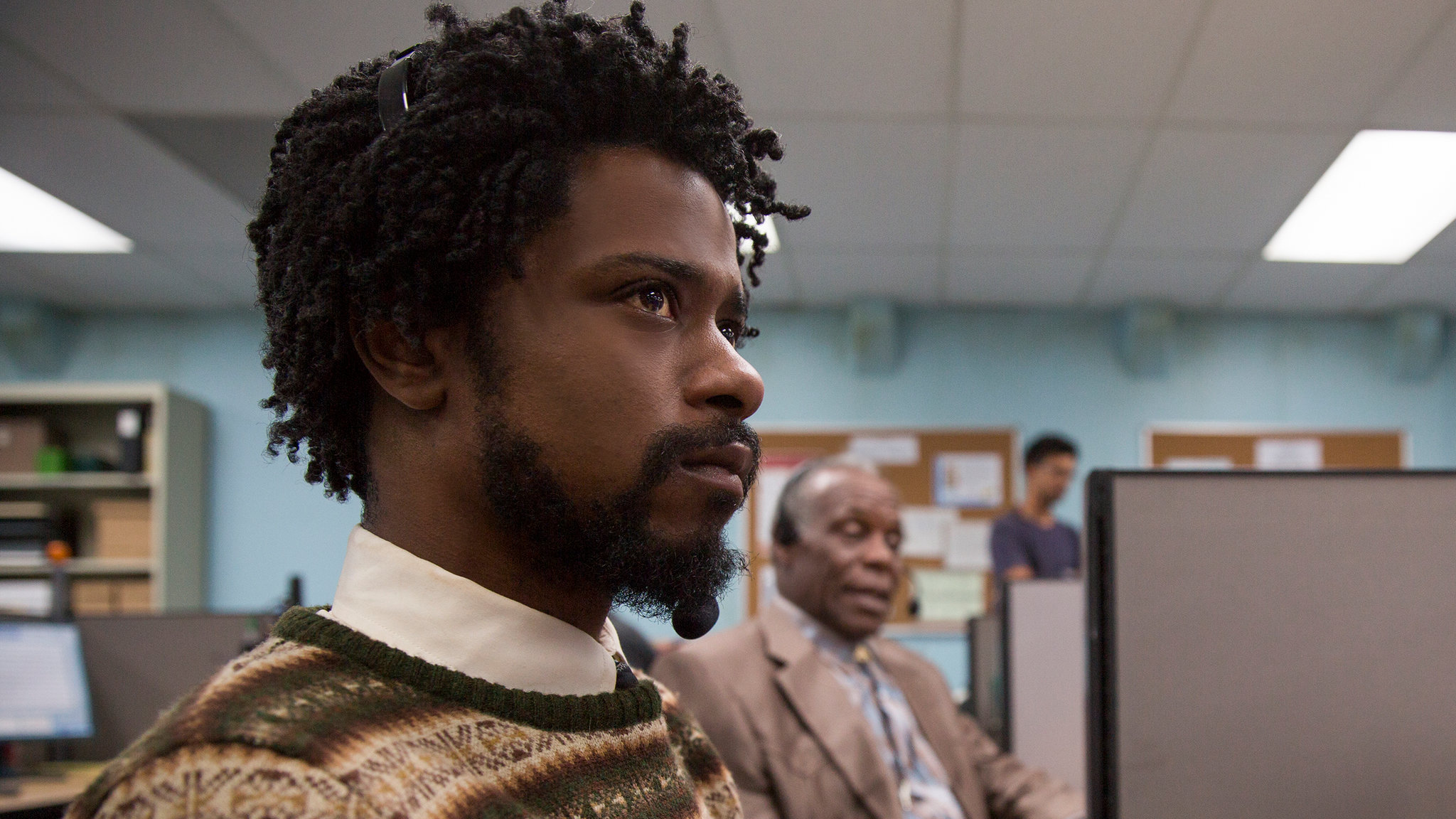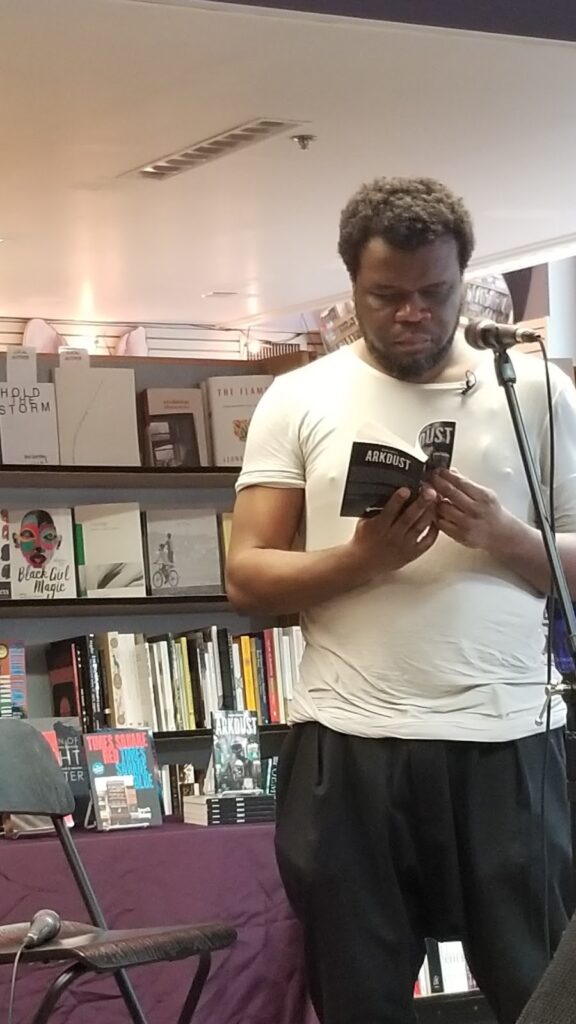
03 May Sorry to Bother You: The Weirder Side of the Gig Economy
BY ALEX SMITH
From its opening scene, Sorry to Bother You is an explosive treatise on capitalism, American bootstrap culture, and how capital-driven systems work to crush, rearrange, and dehumanize the human spirit. Told through the lens of cleverly-monikered Cassius Green (LaKeith Stanfield), a young Black man in Oakland, CA struggling to make ends meet and to figure out his place in the greater universe, the story serves as a surrealist backdrop for first time writer/director Boots Riley’s anti-capitalist ideology. Stepping away from the microphone he commanded as a part of his legendary rap band The Coup, Riley shows he’s got the same chops behind the camera and on the screenwriting page as he does on stage, with his deft wit and cunning humor on full display.
Green’s journey turns chaotic when he joins a call center as a sales rep, at first selling encyclopedias over the phone–a thoroughly thankless job made all the more complicated by the fact that all the callers work on commission. This causes Green to do some things that may compromise who he always thought he was, particularly in the eyes of his radical artist girlfriend Detroit, played masterfully by Tessa Thompson in a role that could have developed as its own movie. Green literally drops in on his customers, falling through space-time and submerging himself into their actual lives. It’s a Michel Gondry-esque approach that starts to pull apart the seams of reality, transforming the film from what could have been a dogmatic, iron-wrought farce with obvious targets, to one that remains truly unpredictable throughout the course of the narrative. When Green develops his “white voice,” an affectation coached to him by an older coworker played brilliantly by Danny Glover, things get even wilder. Without revealing too much, Stanfield and Omari Hardwick, playing a high rising coworker, have their “white voice” lines overdubbed by actual white actors–Patton Oswalt and David Cross, respectively, gleefully in on the joke.

There’s a ton to unpack in this film. Uncovering the layers is as much a part of the watch as is the trippy atmosphere, biting commentary, and flat-out hilarious scenes that examine the compromising practice of code-switching, union busting, and the corporate hegemony we all live under. With Oakland’s Black culture as the setting, Riley gives us an arresting, often challenging epic. My one gripe is that, for a movie with a kitchen sink approach to its ideas and its pursuit of uncovering the interconnectedness of so many “isms,” there aren’t any openly queer characters, which is surprising considering how queer the Bay Area’s activist communities are. Regardless, this film, especially with its shocking ending, was able to separate itself in a year that saw so many radical Black films (including 2018’s Black Panther, Blindspotting, Widows, and quite a few others). By the time Cassius has made it all the way to the company’s Zuckerburgian-CEO (played grossly and perfectly by Armie Hammer, pre-controversy), we come to expect the unexpected in this raucous film.
Where to watch: Netflix

Alex Smith is a sci-fi writer (The Resistance web-series; Black Vans comic book), artist, musician (art-punk bands Solarized, Rainbow Crimes), activist (Metropolarity queer sci-fi collective) and cultural/arts critic (Pitchfork, The Key, Bandcamp, Philly Gay News). He is a recipient of the Pew Fellowship in the Arts and soon to be published author of the sci-fi/cyberpunk/super-hero/Afrofuturist short story collection ARKDUST, forthcoming from Rosarium Publishing

Sorry, the comment form is closed at this time.